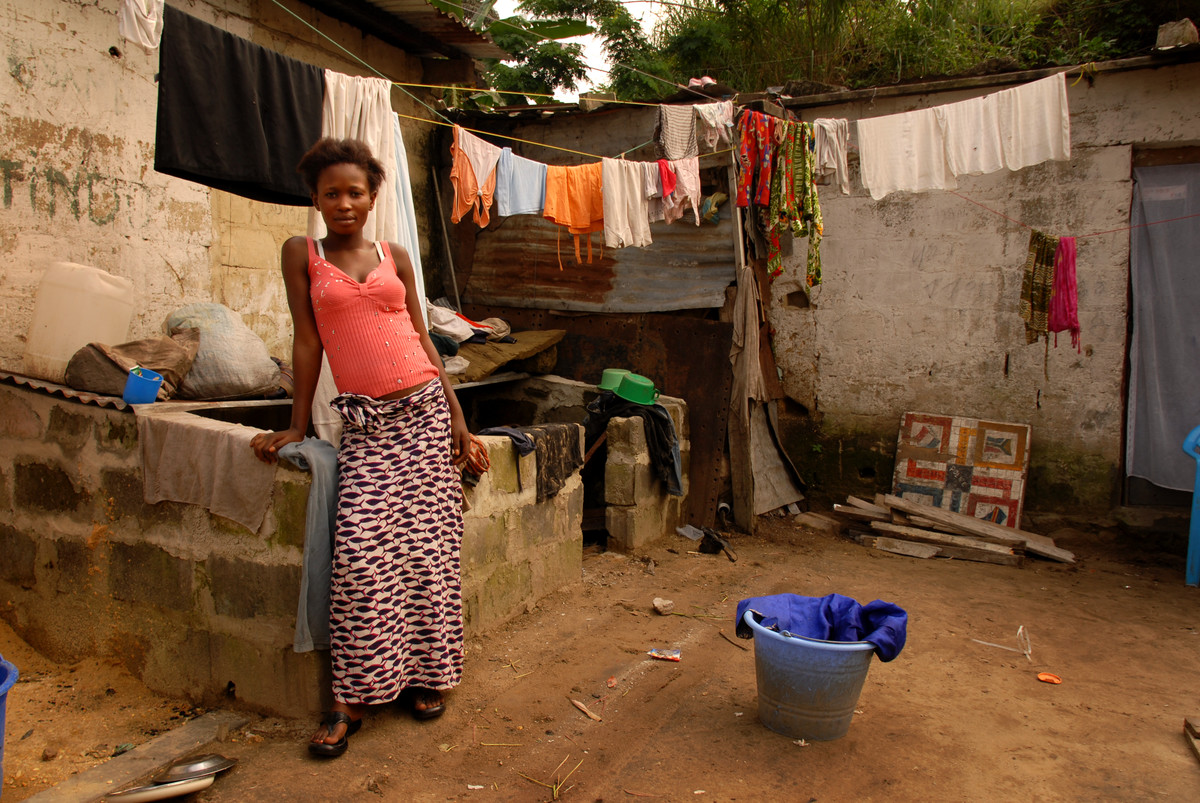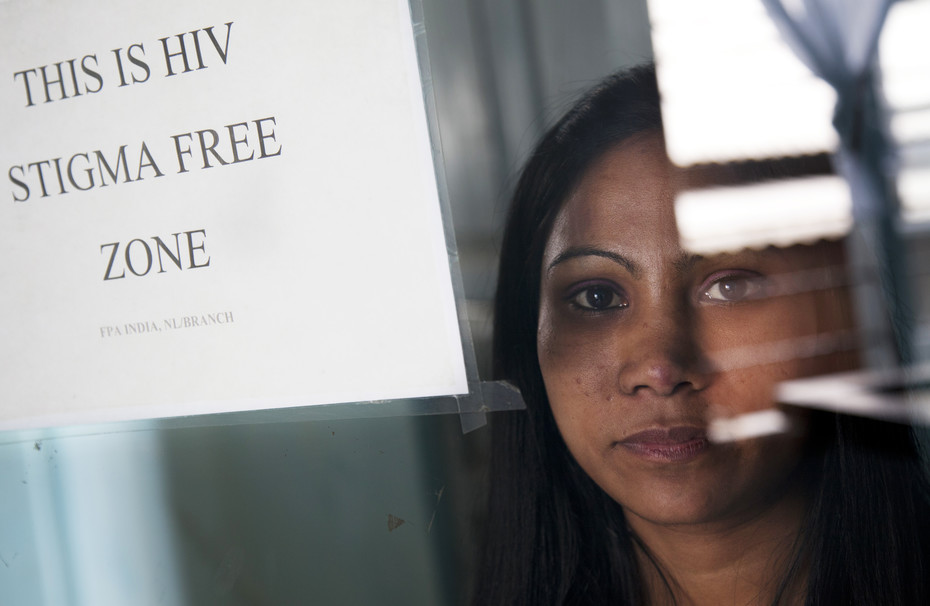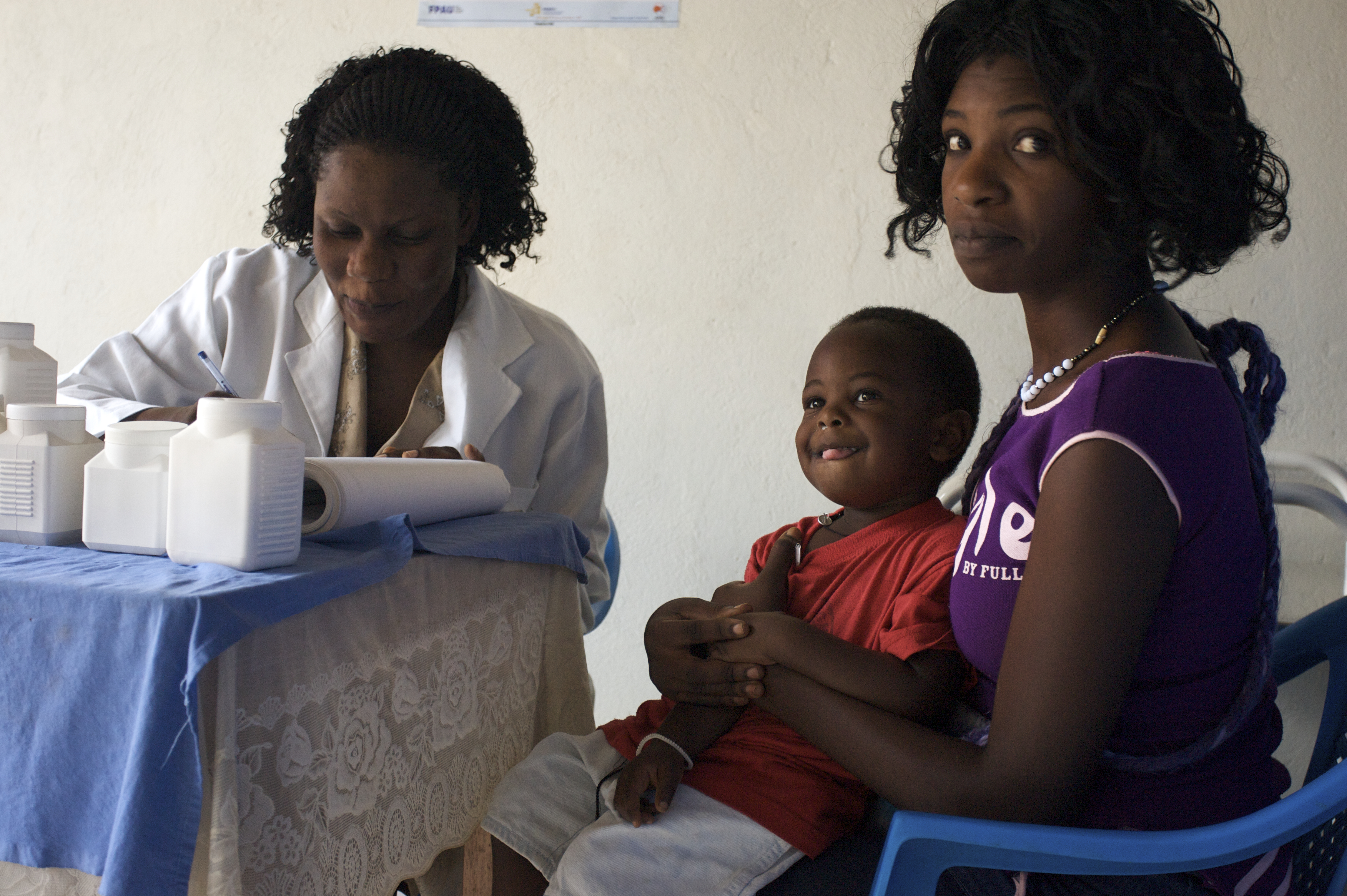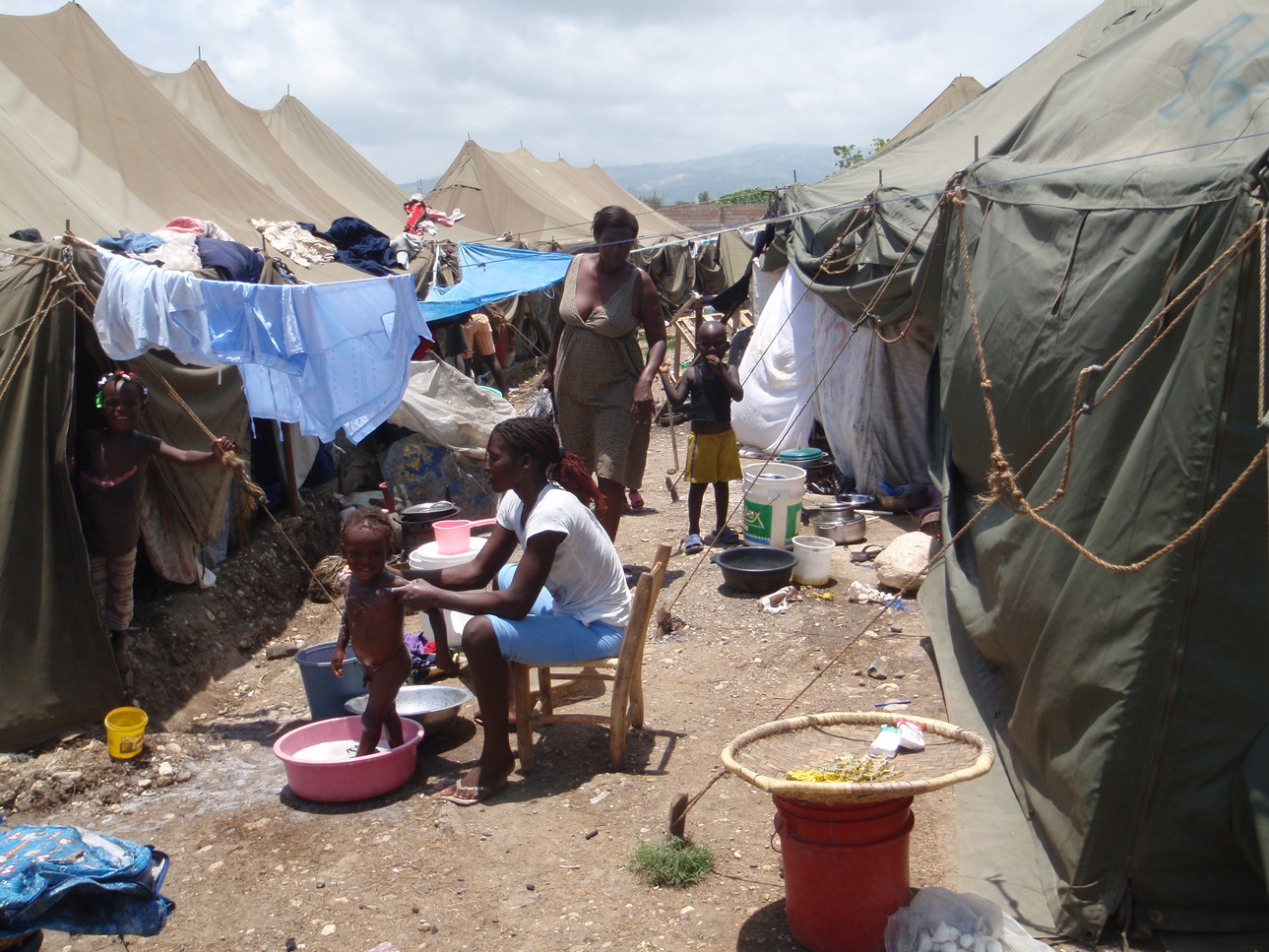
| 18 April 2016
Progress on realising the SRHR promise to African youth at CPD49
Today at the 49th meeting of the United Nations Commission on Population and Development in New York, IPPF’s Director General, Tewodros Melesse spoke to a full room as part of a side-event panel addressing the topic of young people in Africa. The side-event was chaired by South Africa’s Ambassador Kingsley Mamabolo who deftly steered the discussion. The first panellist was UNFPA’s Regional Director for East and Southern Africa, Dr Jullita Onabanjo. She spoke about the importance of the Addis Ababa Declaration on Population and Development for the region. The Declaration was agreed in October 2013 as part of a series of regional reviews feeding into the overall review of progress on the Programme of Action of the International Conference on Population and Development (ICPD). The Declaration, agreed by African Governments, sets out a series of commitments to action, including on sexual and reproductive health, comprehensive sexuality education, data collection and governance: http://icpdbeyond2014.org/pages/view/6-africa Dr Onabanjo called for African governments to share their national experience and learning arising from efforts to implement the Addis Declaration. She looked forward to a platform for this exchange which would also support monitoring of progress on the Declaration and accountability. She recommended a structured and continuous dialogue to take stock and relate monitoring of the Declaration to broader monitoring of the Sustainable Development Goals. The second speaker, Zane Dangor, Special Advisor to the Minister of Social Development, South Africa, started by sharing shocking stories of young women who had suffered or died because they lacked access to safe abortion services. He also told us how Eudy Simelane, a female footballer from South Africa’s national team, was raped and murdered because she was openly lesbian. Zane explained that the Addis Ababa Declaration provides guidance on what states need to do to prevent suffering and deaths like these. South Africa has enacted hate crimes legislation to protect people like Eudy based on domestic legislation, and international agreements, including the Addis Declaration. South Africa has also established an inter-ministerial committee on Population and Development matters to monitor implementation of local, regional and international agreements. Additionally, South Africa has worked to identify gaps in health systems in relation to provision of sexual and reproductive health and rights services that are free from stigmatization and discrimination. Zane described how particular paragraphs in the Addis Declaration provided guidance to South Africa, citing sections about revision of discriminatory laws and policies; ensuring legal systems comply with international human rights regulations and laws; promulgation and enforcement of laws to prevent and punish hate crimes and to protect all people from discrimination and violence; and operationalisation of the right to the highest attainable standard of health. Pointing out that sexual and reproductive health and rights can never be divorced from the pursuit of gender equality and equity, and the full empowerment of women, Zane stressed that the Addis Declaration builds on existing provisions of the African Union to recognise and promote women’s human rights and that it commits governments across Africa to harmonise national legislation with all the relevant international instruments on gender equality and women’s empowerment. Zane concluded with a reminder that the Addis Declaration recognises that we must not choose between rights and development, and that the one cannot be achieved without the other. He supported references to the outcome documents of the regional review conferences – such as the Addis Declaration – in the final resolutions of the Commission for Population and Development, pointing out that words in this context are windows to our consciousness, so we need to embody the spirit of leaving no one behind and ending violence based on discriminatory laws and practices. The third speaker was Dr Simon Miti, Permanent Secretary from the Ministry of National Development Planning in Zambia. Dr Miti explained that a recently conducted demographic study in Zambia was a real eye-opener. It revealed that Zambia currently has the highest ever number of young people in its population: a clear ‘youth bulge’. This realisation led the government to think about how best to realise the demographic dividend through investing in young people’s health, education, rights and employment. Last year the Government of Zambia revised the national youth policy to improve participation of young people, including in the areas of adolescent sexual and reproductive health. The new National Ministry of National Development Planning was also created to help deliver integrated decision-making and implementation across different policy areas affecting young people. Tewodros Melesse, Director General of IPPF, took the floor with optimism, seeing the Addis Declaration as a sign of progress and emphasising that it requires governments to implement the ICPD Programme of Action at national and regional levels. He urged governments to ensure that teachers and the police, the judiciary, private sector and Ministry of Finance all understand the importance of protective legislation and implementation of the Addis Declaration. He called on donors to be partners for implementation, and on Parliamentarians and the media to hold governments to account. Mr Melesse described IPPF’s contribution as a locally owned, globally connected Federation, working for sexual and reproductive health and rights, gender equality and women’s empowerment in over 170 countries. IPPF provides millions of services to young people and delivers comprehensive sexuality education both in and out of school. IPPF believes in empowering young people, and alongside supporting six regional youth networks, IPPF’s governance structure requires that 20% of Board members, at both regional and global levels, are under 25 years old. Noting that about one in five of the young people in the world today live in Africa, Mr Melesse highlighted the potential of the demographic dividend, urging governments to invest in young people’s health, rights and education, including comprehensive sexuality education. He warned that countries with high youth unemployment and poverty could face social instability and urged governments to support youth leadership. Questions from the floor focussed on comprehensive sexuality education, youth leadership and the role of the media, including new media, in providing accurate, evidence-based information for young people about health and rights. The panel concurred on the importance of these issues. The event ended with agreement that the Addis Declaration contained important promises to the young people of Africa and that while progress was being made more needed to be done to turn words into actions on the ground, and to hold governments to account for implementation.

| 08 March 2016
IPPF welcomes new UN commentary on indivisible right to sexual and reproductive health
On International Women’s Day, the International Planned Parenthood Federation (IPPF) has welcomed a new commentary from UN experts which says that the right to sexual and reproductive health is indivisible from other human rights. “It is absolutely right for the Committee to address the issue of sexual and reproductive health specifically, today of all days,” said Tewodros Melesse, IPPF’s Director General. “Sadly millions of women are still denied their basic rights because they are poor, because they suffer discrimination or because they lack legal protection.” The 18 independent members of the Committee on Economic, Social and Cultural Rights said that the right to sexual and reproductive health was not only an integral part of the general right to health, but fundamentally linked to the enjoyment of many other human rights, including the rights to education, work and equality. They said that a lack of care for mothers in childbirth or a lack of access to safe abortion, often leading to maternal death, constitutes a violation of the right to life, and in certain circumstances can amount to torture. “No woman should die in childbirth in 2016 because of a lack of adequate care,” said Mr Melesse. “We know that access to safe abortion saves women’s lives, yet millions are denied that right.” IPPF is a network of sexual and reproductive health and rights organisations in 170 countries that are equipped to monitor and respond to any member of the public who wants information, services, contraception and access to abortion and are available to serve at the first point of response. For further information and interviews contact press office 02079398227

| 07 March 2016
IPPF welcomes European Commission pledge to Global Fund
IPPF welcomes the news that the European Commission has made the first pledge to the Global Fund to fight AIDS, Tuberculosis (TB) and Malaria’s 5th Replenishment – €470 million. That’s an increase of €100 million, or 27 percent, on its previous contribution. "At a time when Europe is facing many budget challenges, this contribution shows great commitment toward global health and ending epidemics as a priority," IPPF’s senior HIV and AIDS adviser Alan Smith said. “Although huge progress in the fight against HIV has been made, there remains much to be done to achieve the end of AIDS as a public health threat by 2030, not least of which is funding the UNAIDS fast track strategy, to which this is a significant contribution. We call on other donors to emulate the Commission in increasing their pledges to global fund” In 2014 IPPF provided 32 million HIV services around the world.

| 19 February 2016
IPPF calls for G7 leaders to prioritize the full range of sexual and reproductive health care services in Universal Health Coverage
18 February, Tokyo:The International Planned Parenthood Federation (IPPF) calls for G7 leaders to prioritize the full range of sexual and reproductive health care services in plans for Universal Health Coverage in their forthcoming Ise Shima G7 Summit in May. IPPF made this call at this week’s G7 Health Experts’ Meeting in Tokyo. IPPF said sexual and reproductive health care (SRH)services are essential because they save lives, are cost effective and offer universal benefits. IPPF highlighted that SRH services are critical to achieving women’s empowerment, equality and full participation in society. These services play a crucial part in the development of resilient health systems that can help reduce the impact of humanitarian disasters. Giselle Carino, IPPF Western Hemisphere Regional Director Designate, who attended at the meeting said: "Governments (public sector) cannot work alone to ensure that no-one is left behind. Locally-owned organizations, such as IPPF Member Associations, are working at the frontline supporting communities, particularly poor and underserved people including women and adolescents, to make a real and sustainable difference in their health status and realize human security. G7 leaders must recognize the role of civil society in health system strengthening and building a new global health architecture". IPPF also calls for: The principle of Universal Health Coverage: that everyone has the right to health without facing financial hardship and no social groups can be left behind. Essential sexual, reproductive, maternal, new-born, child and adolescent health services at the primary care level should be a priority of Universal Health Coverage because investment in these services is among the most cost-effective interventions that a health system can provide. The importance of the social and gender determinants of health should be recognized by mainstreaming gender equality into Universal Health Coverage and national health strategies. Making significant progress on both targets 3.7 and 3.8 would be transformative. Therefore IPPF urges the G7 to prioritize discussion of how these targets can be achieved during preparations for the Ise-Shima summit and in particular calls on the G7 to ensure that sexual and reproductive health services are prioritized in plans for Universal Health Coverage.

| 09 February 2016
IPPF support UN’s vision for tackling humanitarian crises
The International Planned Parenthood Federation welcomes the United Nations Secretary General’s humanitarian report which he delivered today. (February 9th) Ban Ki-Moon outlined five core responsibilities for the international community in a report which set out his vision ahead of the world humanitarian summit in May. These included better political leadership, protection for civilians, respect for humanitarian law, inclusive policies to make sure no one is left out, more flexibility and joined-up thinking from the aid community. He said the aid industry and his own organisation needed to urgently reform so they could react more effectively to today’s many crises. Director General, Tewodros Melesse said: "We strongly agree with the vision laid out by the Secretary General. At IPPF, we believe that there needs to be a serious rethink when it comes to the humanitarian response to the increasing number of crises around the world. “From our perspective we think it is essential that sexual and reproductive health and rights are included in the humanitarian response.” The figures for humanitarian crises are dramatic. More than a billion people alive today have seen their lives upended by crisis, war, instability; epidemics and disasters have left a long trail of turmoil and destruction. More than 100 million people in need of humanitarian assistance We know that a quarter of these are women and girls aged between 15 and 49 who are heightened risk of sexually transmitted infections, including HIV; unintended, unwanted pregnancy; maternal death and illness and sexual- and gender-based violence. The statics show that 56 per cent of maternal and child deaths take place in fragile settings, many of them affected by conflicts and recurring natural disasters. Over the past decade, IPPF has reached millions of people during floods, conflicts, earthquakes, cyclones when health care systems have often collapsed. At these moments IPPF Member Associations continued to serve the unreachable particularly women which are three-quarters of IPPF clients. We have an organizational strategy to address sexual and reproductive needs before, during and after humanitarian crises. IPPF’s first response is with its Minimum Initial Service Package, which is life-saving, and then IPPF transitions to its Integrated Package of Essential services, which is life-changing. Often our intervention in the aftermath of humanitarian disasters ensures that the sexual and reproductive health situation is better after the crisis than before.

| 05 February 2016
Syria must not be a silent crisis for women and girls says IPPF
In reaction to yesterday’s pledges made from donor governments to Syria's aid conference in London, IPPF Director General Tewodros Melesse said more action should be taken to ensure that sexual and reproductive health and rights are at the centre of humanitarian efforts. Mr Melesse stated that “We have seen some great progress and we must celebrate that governments have come together to tackle one of the largest humanitarian crises we have seen in a long time. But we must not forget that in the response, sexual and reproductive health services should also be a top priority. Women and girls are disproportionately influenced by humanitarian crises exposed to early marriage, trafficking, rape, forced pregnancies, unattended service delivery during complicated pregnancies and delivery. We could save lives by putting money and efforts into an integrated comprehensive package on reproductive health into the standard humanitarian response. IPPF has been doing this for years, our staff work on both sides of the border and on the frontline. Beyond the immediate crisis we also work with those affected for the long term”. IPPF in Syria In Syria 46,500 women will suffer gender based violence, including rape, as a result of the ongoing conflict. This shows a great need to ensure that the human rights of women and girls are protected and able to access sexual and reproductive healthcare. IPPF Member, the Syrian Family Planning Association is on the front line when it comes to dealing with the less-reported consequence of every war- sexual and reproductive health and rights. Syrian Family Planning Association Executive Director Dr. Lama said “ When a woman comes to our services she is typically lost and without hope. Our indicator of success is that we help the hopeless to have hope. We need more support to sustain and expand our services and to maintain the protection services we provided full of confidentiality and confidence. " Over the last 10 years, IPPF has reached millions of people during floods, conflicts, earthquakes, cyclones. When health care often collapsed, our Member Associations continued to reach the underserved, which makes three quarters of IPPF clients. For more information or interviews contact press office 02079398227







